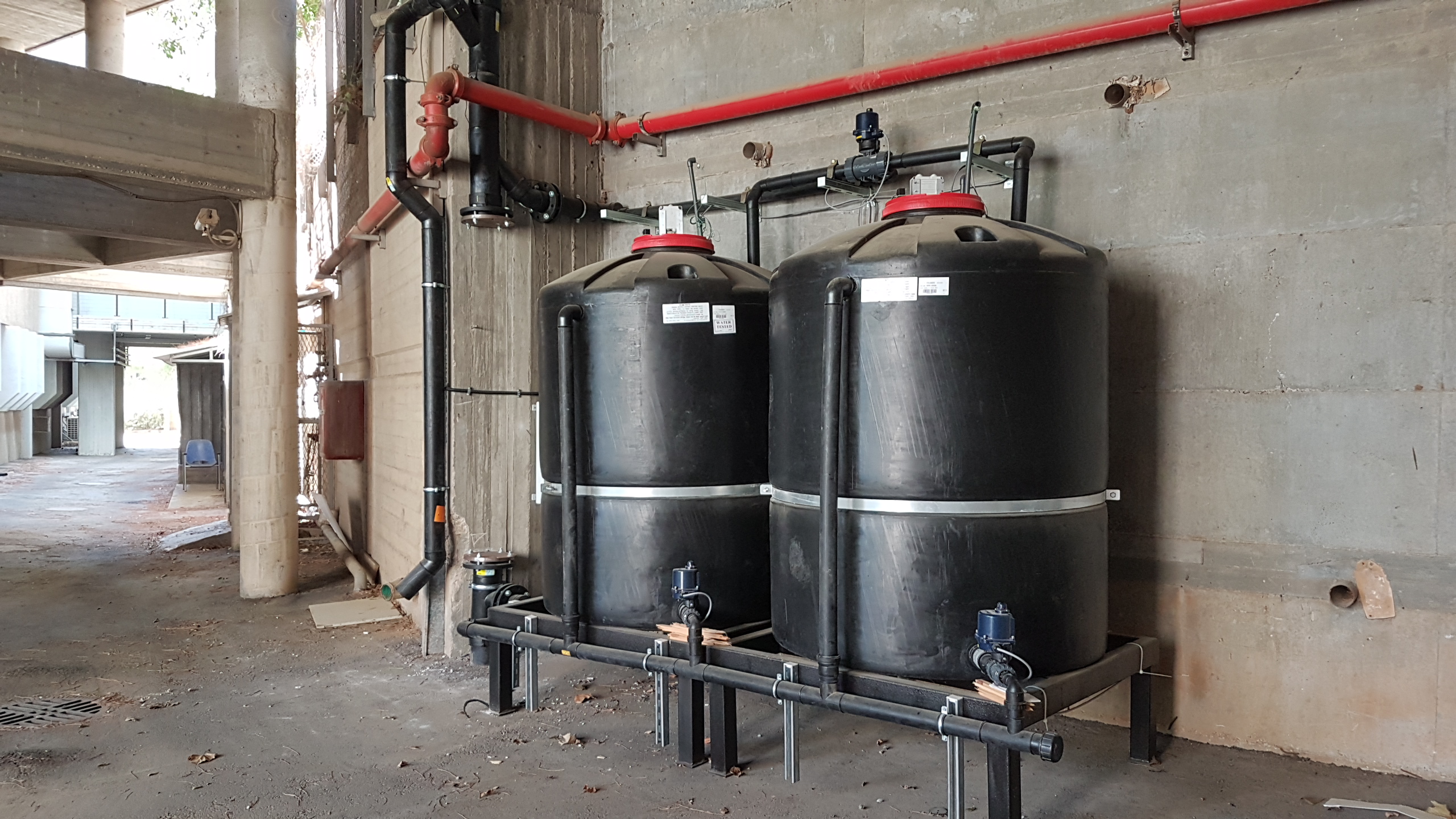Israeli and German scientists join forces in the fight against climate change
January 5, 2020Recently, the Haifa Center for German and European Studies at Haifa University held its very first conference on decarbonization strategies in Germany and Israel
The Israeli-German theme of the conference could not have been more intriguing, considering the vastly different environments and the distinct energy and climate-related challenges both countries are facing and will be facing in the future. However, bringing environmental scientists from both countries together raises one question. How can Israel and Germany help one another in their efforts to decarbonize their respective economies?
József Kádár, a PhD candidate at the Haifa Center for German and European Studies and the organizer of the conference, emphasizes the importance of the exchange of ideas between Israel and Germany regarding the decarbonization process. “Among the European countries, Germany is a pioneer of the renewable energy transition and decarbonization process. This is not the most pressing issue in Israel at the moment, but it makes it all the more important to engage in a dialogue from which, I believe, both countries can benefit immensely,” Kádár says.
Israel and Germany head-to-head
In his opening remarks, Dr. Steffen Hagemann, the director of the Israeli branch of the Heinrich Boell Foundation, said that in order for Germany and Israel to meet the targets of the Paris Agreement, a mere transformation of the energy market will not be enough. There has to be a sweeping change in all economic sectors, which includes societal and cultural reforms. “Climate change is not only an environmental and ecological challenge, but it is a cultural challenge. It is a culture shock.”
While Germany’s “green leadership” has become a key element of the nation’s identity and foreign policy, in Hagemann’s eyes, the country has failed to develop a sound strategy for the future that fully encompasses all economic sectors, technologies, and social factors.
Prof. Benjamin Bental, the former director of the Center for German and European Studies and professor for economics at the University of Haifa, made a striking comparison of renewable energy policies in Israel and Germany. In this context, Bental referred to the Energy Transition Index of the World Economic Forum. This Index illustrates the readiness of a country for energy transition as well as its current system performances. Based on the index, Germany ranks at number 17 while Israel trails behind at number 30.
Prof. Bental pointed out that although Israel is 13 places behind Germany in the overall positioning, it surpasses Germany in system performance, which includes Energy Access and Security, Economic Growth and Development, as well as Environmental Sustainability.
“The reason for this is very simple. While Energy costs in Israel are much lower, Germany is heavily subsidizing green energies and imposing huge costs on the consumer and the industry. Therefore, the country is performing worse in the economic aspects relatively to Israel. Whereas, Israel is doing much worse when it comes to the preparedness for the actual transition,” says Bental.
“However, the index gap between the current renewable energy leader, Sweden (who beats Germany and Israel in both performance and preparedness by far), and Germany is even greater than the gap between Israel and Germany. Thus, Germany and Israel are much closer together in their overall performance than Germany and Sweden, without Israel having done much of anything in regards to renewable energy policies,” he adds.
According to Prof. Bental, this poses a big question concerning the effectiveness of German policies towards a renewable energy transition that needs to be addressed.

Environmental policies need an environmentally-active civil society
During the conference, which was divided into three separate panels that discussed the individual stages of decarbonization in Israel and Germany, the speakers pointed out the main features of the country’s energy sectors.
Prof. Sabine von Mering, the director of the Center for German and European Studies at Brandeis University in the United States, argued that despite Prof. Bental’s remarks, renewable energy did have some major successes in Germany over the past two decades.
According to Prof. Mering, Germany has been exporting a significant amount of green energy to its neighboring countries, which admittedly, is a privilege Israel does not have at the moment. Secondly, the share in renewable energies in the country has reached over 35%.
At the same time, Israel is facing its very own problems with regard to climate change. One example, as pointed out by Dr. Amit Tubi from the Hebrew University of Jerusalem, is the country’s increased carbon footprint from seawater desalination, which supplies 80% of Israel’s drinking water. While this innovative practice has decoupled water production from the climate, it increases Israel’s greenhouse gas emissions significantly.
The desalination process needs enormous amounts of energy, and in Israel, this energy is provided purely by fossil fuels. Therefore, the country is now facing a challenge that is two-fold: transitioning to renewable energy sources, while producing “green,” desalinated water at an increasing rate.
With the discovery of large natural gas fields off the shore of Israel’s Mediterranean coast at the beginning of this decade, many thought that the country’s energy issues were solved. However, with natural gas being only slightly more environmentally friendly than coal, Israel will still need to transition to near a zero-carbon energy market, which will not be possible with an economy based on natural gas.
Given all these aggravating factors, Tubi suggests that a purely political-based strategy will not be enough. He adds that active public involvement is going to be indispensable to ensure a successful renewable energy transition by 2050. To this end, he proposes to “cultivate an environmentally-active civil society.”
Omer Tamir of EcoTraders, an environmental management consulting agency in Israel, elaborated on Israel’s energy goals for the near future. According to the targets set in 2015, Israel plans to supply 17% renewable energy to its national grid by 2030, while reducing the current 9.5 tons of CO2 emissions per capita to 7.5 tons per capita. In addition, the usage of private cars hopes to be curbed by 20%, facilitated by a large-scale shift to public transportation.
Tamir touched upon the fact that due to Israel’s limited land resources, most of the renewable energy will have to be produced in urban areas. Thus, cities will have to be provided with the proper infrastructure and the corresponding city planning efforts. Similar to Tubi, Tamir believes that ultimately, it will be the support of the citizens and especially the commitment of young people that will enable the effective implementation of government policies.
Dr. Heiko Thomas from the Institute of Advanced Sustainability Studies in Germany presented the decarbonization strategies for Germany. While Thomas did not address the social and political requirements of the decarbonization process, he pointed out that Germany’s energy market will have to be based on a diversified model of different renewable energy sources.
“Germany will phase out its last nuclear power plant in two years and has recently decided to phase out coal in 2038,” Thomas says. According to current projections, Germany’s energy market is going to be based on a diversified system with onshore wind, solar photovoltaics, and solar thermal systems being the primary sources of renewable energy.

A look into the future
The very last panel of experts discussed decarbonization strategies for the 21st century and, therefore, concepts and plans that might not yet be feasible, but may take place in the future. However, cutting-edge technology and groundbreaking innovation were not at the center of this panel, but the speakers once again emphasized the importance of public participation in policymaking and the importance of involving future generations. After all, future generations will have to improve and further develop strategies to tackle climate change.
Gil Proaktor from the Ministry of Environment said that a number of teams led by the relevant ministries were set up, which are currently in the process of finalizing and realizing Israel’s renewable energy targets. While the implementation and the continuous update of the goals are critical, Proaktor points out that participation and support of experts, as well as the public, are equally as important.
“We need experts, the public, and civil organizations alike to advance renewable energy policies and raise awareness about the need to decarbonize. Only when the public as a whole realizes the linkage between climate change, decarbonization, and our long-term prosperity, will we be able to convince decision-makers to make the right decisions,” he concludes.
This ZAVIT article was also published in The Jerusalem Post on 12/29/2019.







